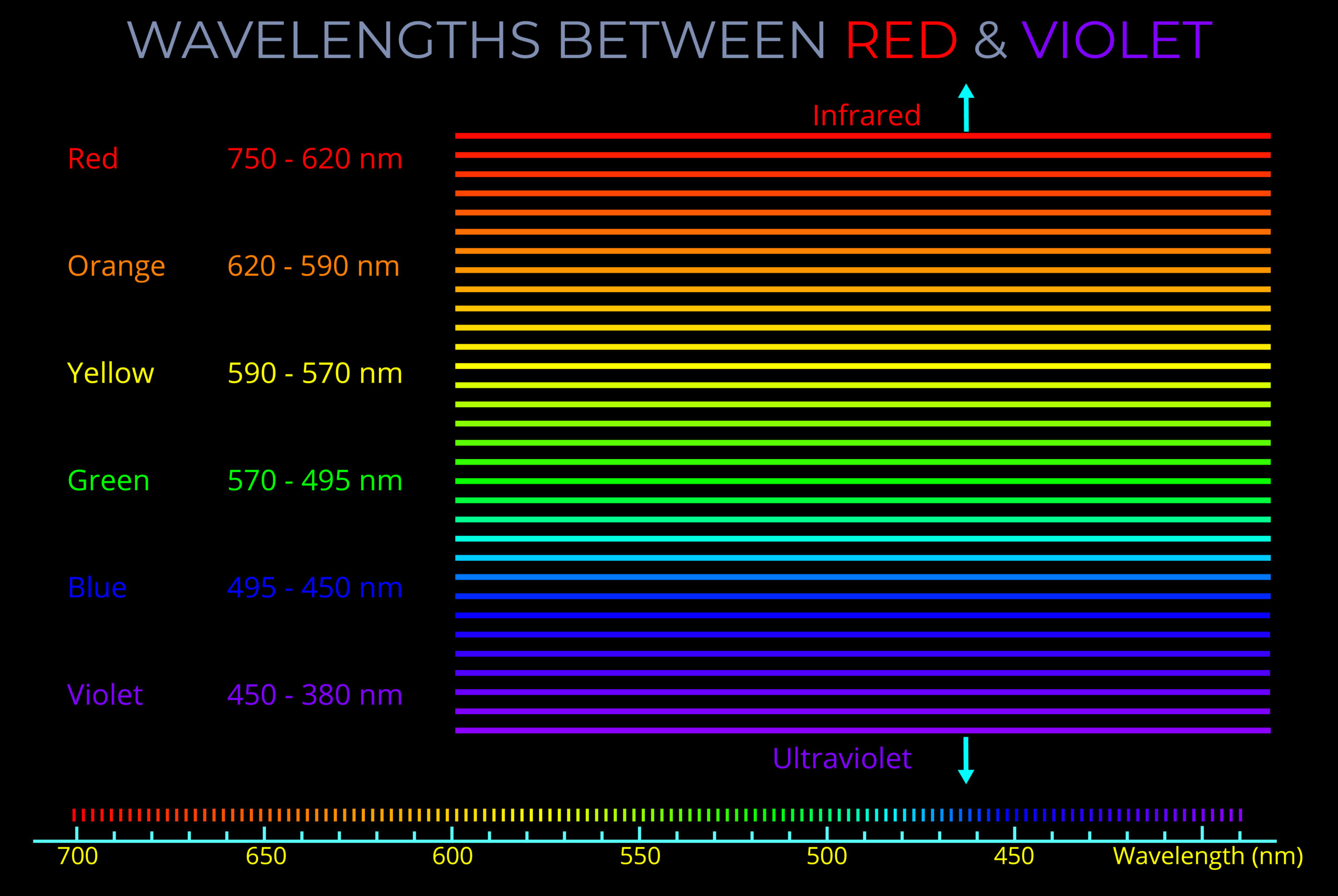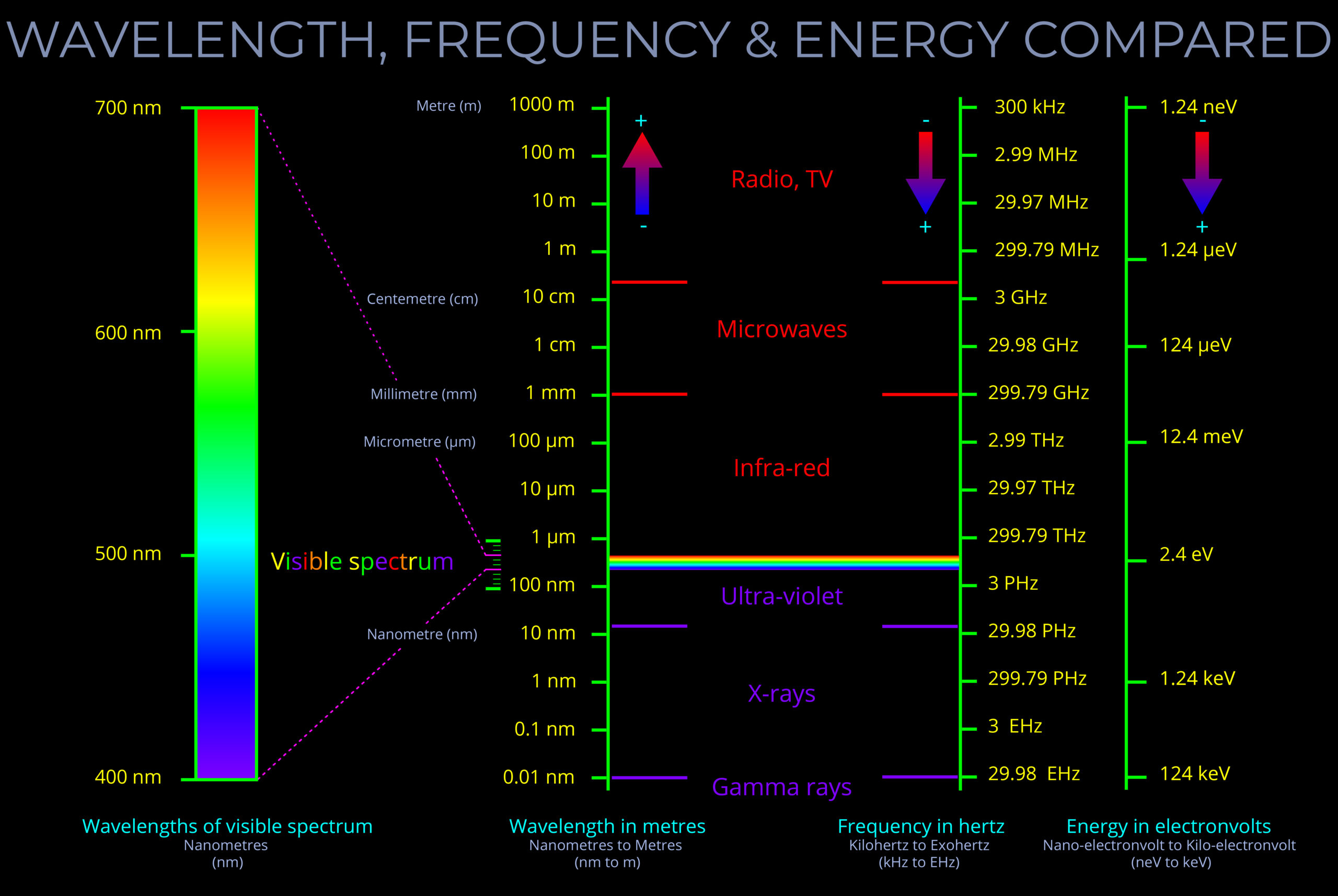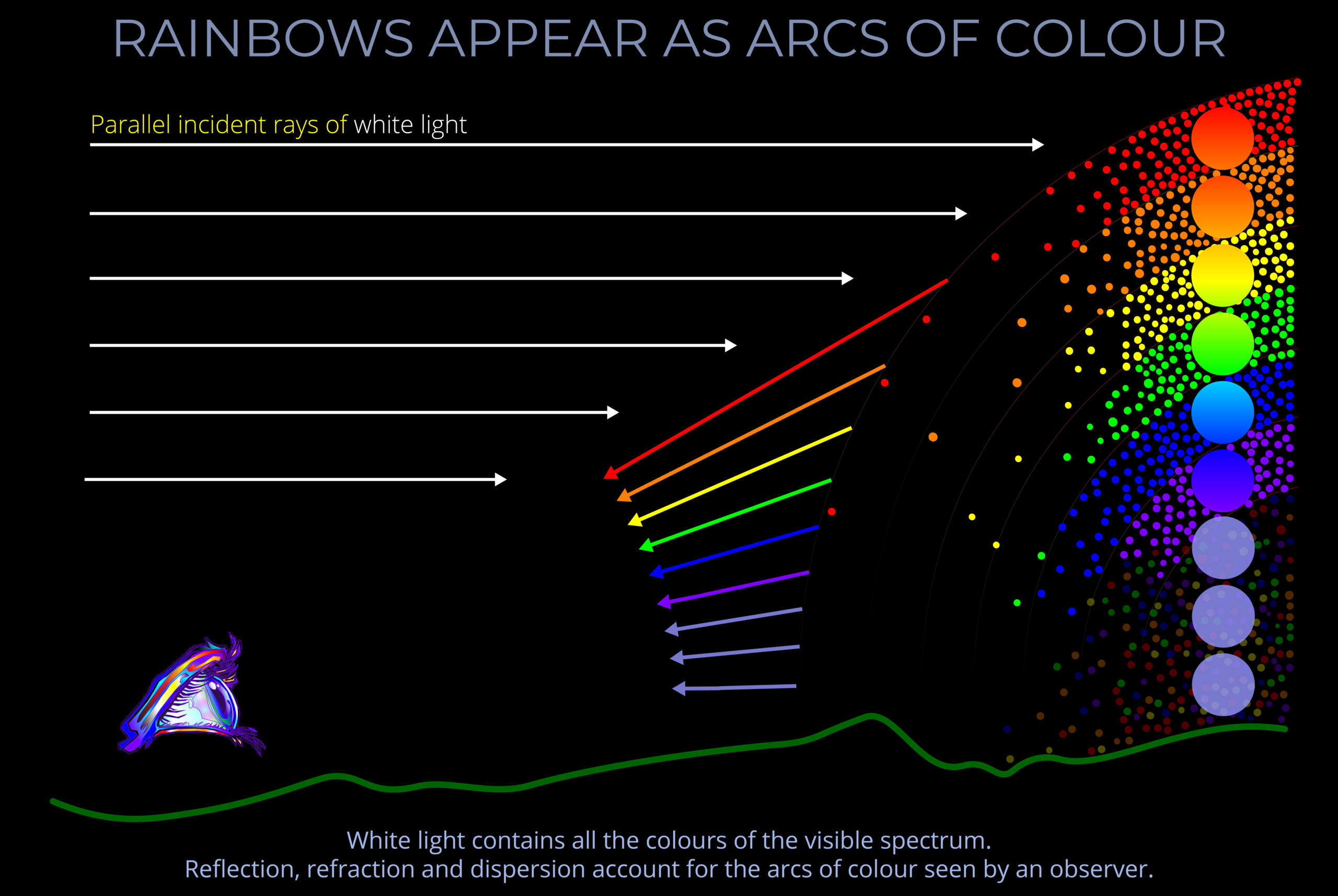The visible spectrum is the range of wavelengths of the electromagnetic spectrum that correspond with all the different colours we see in the world.
- Human beings don’t see wavelengths of visible light, but they do see the spectral colours that correspond with each wavelength and colours produced when different wavelengths are combined.
- The visible spectrum includes all the spectral colours between red and violet and each is produced by a single wavelength.
- The visible spectrum is often divided into named colours, though any division is somewhat arbitrary.
- Traditional colours in English include: red, orange, yellow, green, blue, and violet.
- The visible spectrum is continuous, and the human eye can distinguish many thousands of spectral colours.
- The fact that we see distinct bands of colour in a rainbow is an artefact of human colour vision.
- The visible spectrum is a small part of the electromagnetic spectrum.
The visible part of the electromagnetic spectrum is called the visible spectrum.
- The visible spectrum is the range of wavelengths of the electromagnetic spectrum that correspond with all the different colours we see in the world.
- As light travels through the air it is invisible to our eyes.
- Human beings don’t see wavelengths of light, but they do see the spectral colours that correspond with each wavelength and colours produced when different wavelengths are combined.
- The visible spectrum includes all the spectral colours between red and violet and each is produced by a single wavelength.
- The visible spectrum is often divided into named colours, though any division of this kind is somewhat arbitrary.
- Traditional colours referred to in English include red, orange, yellow, green, blue, and violet.


